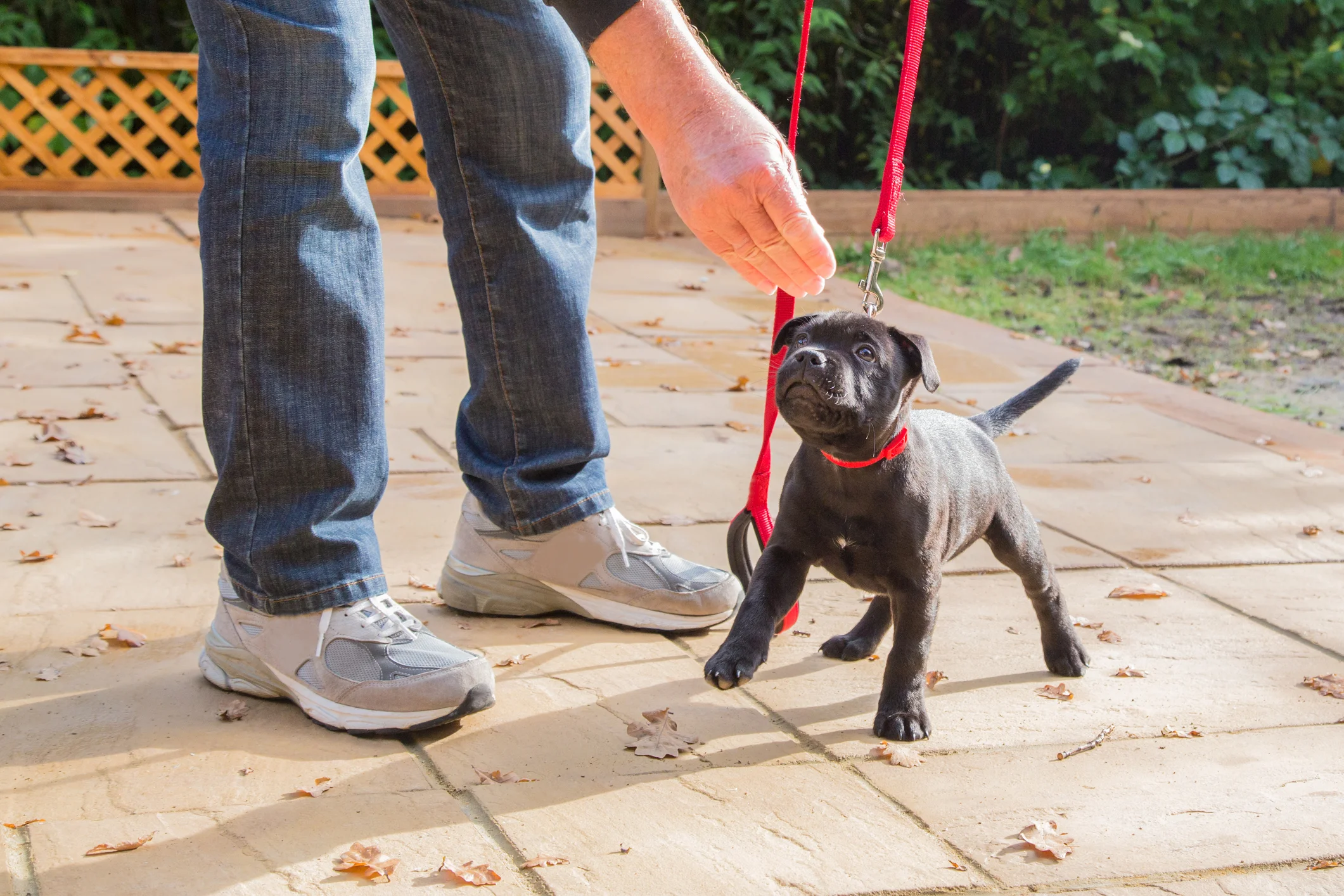Top 10 Financial Considerations for Raising a Puppy
Puppies are endearing and adorable; however, let's face it; raising a puppy into a good dog is often fraught with various challenges and expenses. Also, raising a puppy is a big responsibility since you will have to help your adorable pup learn how to do almost everything. Teaching them is your responsibility that will reward you with a companion that has a long and healthy life.
If you have never raised a puppy before, then the task before you may seem quite daunting. But, once a puppy’s big, cute eyes capture your heart, there is no turning back. Although it is great to see people’s enthusiasm for wanting to raise puppies, often this enthusiasm ignores the financial considerations of raising a dog. According to a breakdown of the annual costs of raising a pet, not surprisingly, dogs came out on top with costs ranging from about $737 for small dogs to about $1,040 for large dogs.
Hence, you should consider these topics to care for your puppy and give him or her many years of healthy and happy dog life.
Check out “The Real Cost Of Owning A Dog In 2021!“ from Doggypedia for even more recent information before you decide whether a pup is right for your family
1. Food
Food is easily the most predictable cost of raising a puppy. Prices often vary depending on the size and age of your dog as well as the brands you decide to use. Costs can also differ based on the energy level of your dog. Premium dog foods usually have better nutritional value primarily because of high standards in ingredients. While they typically cost more, note that the higher nutritional value they offer means that your fluffy companion can eat less while still meeting his specific health needs. In any case, you should check with your vet to determine the best diet and feeding schedule for your dog.
2. Collars and Leashes
Of the most important dog accessories, your pup should have at least one leash and one collar with ID tags. Even if your dog is microchipped, ID tags are the fastest way to reunite with your puppy that has wandered off. Most dog owners in the U.S. spend between $20 and $80 a year on collars and leashes depending on their size and quality. By buying quality products, you might be able to make one collar and leash set last for more than one year.
3. Toys
The costs of playtime are different for each dog, and dog toys are a vital part of your pup's mental stimulation and exercise. Some dog breeds are typically more prone to chewing and might go through their various toys more quickly, which leads to more frequent replacement costs. And for some dogs, even an old tennis ball along with a sock is enough.
4. Beds
Your puppy deserves a comfy and cozy bed and a good dog kennel. Having one or two beds around your house will cost you between $50 and $200 each but will make your home more comfortable for everyone since your dog has his own place to relax. Prices depend on the size and quality of the bed. Getting high-quality, durable, and easy-to-clean beds for your pup can extend the lifespan of the bedding and keep your costs low in the long run.
5. Grooming
Your pup's grooming needs may vary based on the kind of hair coat they have. Usually, short-haired dogs need less maintenance and, hence, have fewer grooming expenses compared to those with longer coats.
Although you can tackle most grooming tasks on your own with a brush and some shampoo, if your puppy has special needs, you will have to pay for a professional groomer. Do not forget to ask your groomer for tips on keeping your pet’s skin and fun healthy between professional visits.
6. Veterinary and Medical Expenses
Overall, vet costs for a dog will be one of your heftier expenses, although ensuring your dog gets regular veterinary checkups is important for your dog’s health. The cost to spay or neuter a dog ranges from $50 to $175 depending on the size of your dog and whether your pet has certain health conditions that may complicate the surgery. Also, the costs of vet care will often be considerably higher in a big city than in small towns. The costs of puppy vaccinations and boosters are between $20 and $150. Fecal exams and worming costs are $20-40. In case you live in a region that puts your pup at risk for heartworms, then necessary testing and preventative heartworm treatments will cost you $25-130 annually, but this beats the $700 cost to treat heartworms.
Modern veterinary care can be quite expensive. Dog owners are demanding, and a quality veterinarian is increasingly able to offer a higher standard of care than in the past. However, veterinarian bills have also increased as a result. These higher costs are why more dog parents are resorting to veterinary crowdfunding like CoFund My Pet to help pay for high veterinary bills.
7. Dog Training Costs
All puppies need basic puppy training to help with housebreaking and initial obedience training. Dog training allows pet owners to communicate with their dog and also keeps him healthy mentally and physically. Training could also be an excellent investment, as it can help in preventing your dog from engaging in destructive behavior in the future.
You may train your puppy at home if you are the do-it-yourself type. However, remember that there is no substitute for the expertise and assistance of an experienced professional dog trainer.
8. Pet Sitters and Boarding
A majority of dog owners will have to leave their furry companions behind at least once or twice a year. Usually, the cost of boarding a pet or using a pet sitter will be between $50 and $100 per day. If you travel more frequently, you should expect to spend even more, so it’s worth finding a regular animal hospital, doggie daycare for boarding, or a pet sitter that you and your pet trust. If you tend to work long hours, then you might also want to consider hiring a pet sitter or dog-walker for scheduled outings.
Although boarding costs can be less than hiring a pet sitter, a lot of dog owners prefer the undivided attention a pet sitter offers and think it’s worth the extra expense.
9. Pet Insurance
Consider getting pet insurance for your puppy, which is likely to provide some relief to help you pay for both unexpected and routine vet bills. According to a recent pet-parent survey by LendEDU, 20% of respondents have gone into debt caring for their pet at an average of $1,566.96. Note that with pet insurance,you will usually have to pay your pup’s vet bills directly at the time of service, and then get reimbursed from the insurer. But, having pet insurance can give you certainty in affording your pet’s vet bills.
Without pet insurance, you should budget around $700-1500 per year for vet costs, and that doesn’t include emergencies. This figure excludes the bills for preventive medications as well as supplements, too.
10. Emergency Veterinary Costs
In most cases, a pet emergency bill that does not require surgery will often cost between $2,000 and $3,000 and possibly more if you have to go to an after-hours emergency vet. In contrast, a pet accident requiring surgery typically costs between $3,000 and $5,000. Also, trauma (like getting attacked by another animal or even your dog being in a car accident) and canine cancer are two of the most widespread health problems that dogs tend to experience.
Inability of pet owners to afford to pay for emergency pet care is the leading cause of economic euthanasia with injured puppies.
Check out The true cost of keeping a dog in 2020 from Dr. Leslie Brooks DVM, MPH of betterpet.
Final Thoughts
Raising a puppy can be one of the most exciting, rewarding, and fun experience for you, and they are great additions to any family. Every single member of our team has raised many puppies into amazing dogs and none of us would trade it for anything. Take these ten financial considerations seriously to ensure you are the best pet owner for your furry friend and family member.
Check out our other Dog Blog articles
Return to the Pet Blog





